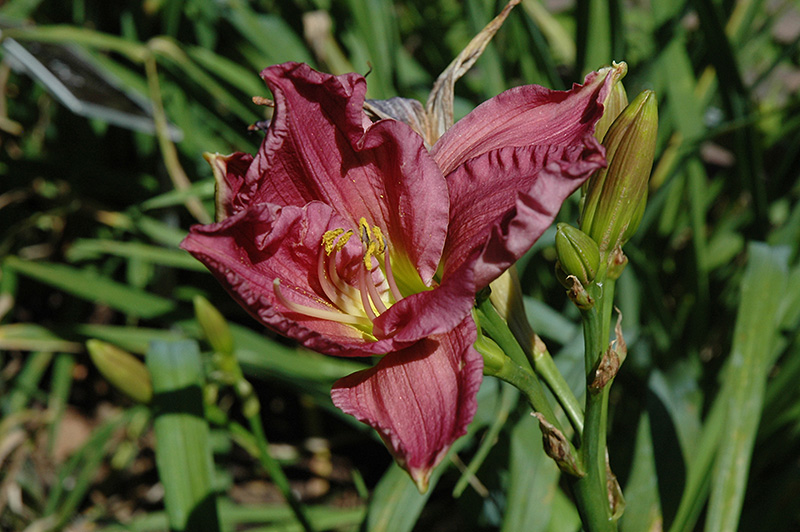Know Before You Go!
Get notified before our plants arrive in stores near you.
Plant Care Library
Height: 15 inches
Spacing: 10 inches
Sunlight:
![]()
![]()
Hardiness Zone: 4b
Description:
Rich dark purple-rose rumpets with contrasting yellow throats and pie crust edges; great grassy texture and form; diploid; a striking addition to the garden or border
Ornamental Features
King Of Kings Daylily features bold deep purple trumpet-shaped flowers with rose overtones and lemon yellow throats at the ends of the stems in mid summer. The flowers are excellent for cutting. Its grassy leaves remain green in color throughout the year.
Landscape Attributes
King Of Kings Daylily is an herbaceous evergreen perennial with a shapely form and gracefully arching foliage. Its medium texture blends into the garden, but can always be balanced by a couple of finer or coarser plants for an effective composition.
This is a relatively low maintenance plant, and is best cleaned up in early spring before it resumes active growth for the season. It is a good choice for attracting butterflies to your yard. It has no significant negative characteristics.
King Of Kings Daylily is recommended for the following landscape applications;
- Mass Planting
- General Garden Use
- Groundcover
Planting & Growing
King Of Kings Daylily will grow to be about 12 inches tall at maturity, with a spread of 12 inches. When grown in masses or used as a bedding plant, individual plants should be spaced approximately 10 inches apart. It grows at a medium rate, and under ideal conditions can be expected to live for approximately 10 years. As an evegreen perennial, this plant will typically keep its form and foliage year-round.
This plant does best in full sun to partial shade. It is very adaptable to both dry and moist locations, and should do just fine under typical garden conditions. It is not particular as to soil type or pH. It is highly tolerant of urban pollution and will even thrive in inner city environments. This particular variety is an interspecific hybrid. It can be propagated by division; however, as a cultivated variety, be aware that it may be subject to certain restrictions or prohibitions on propagation.
A NetPS Plant Finder tool

